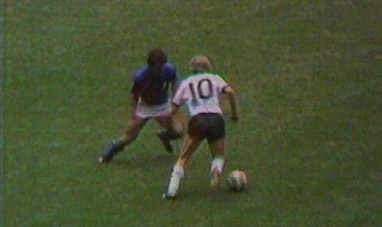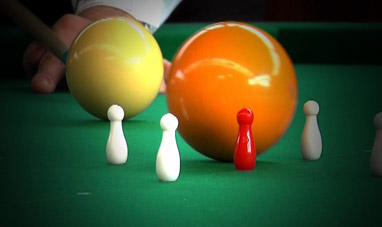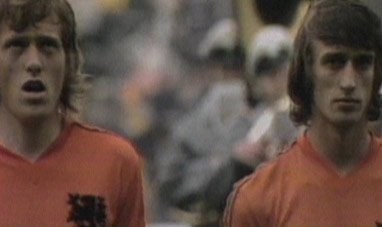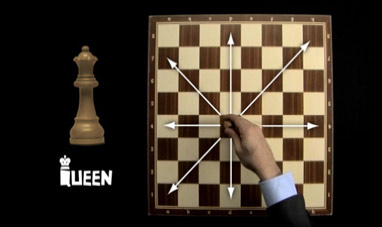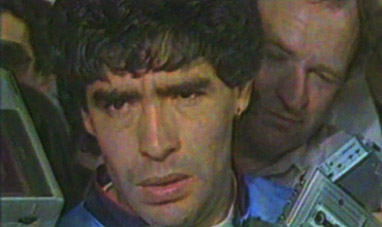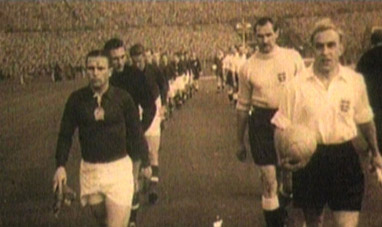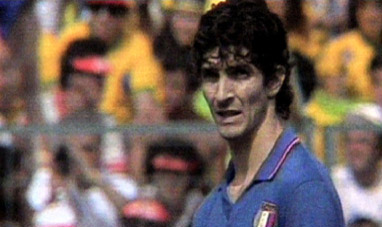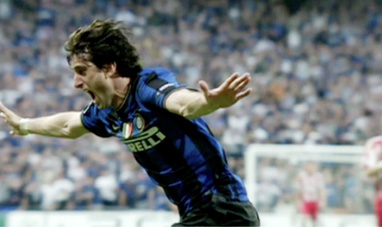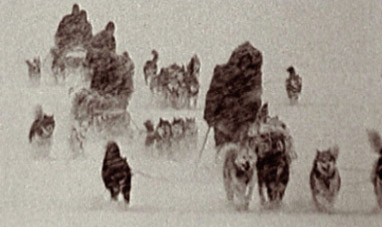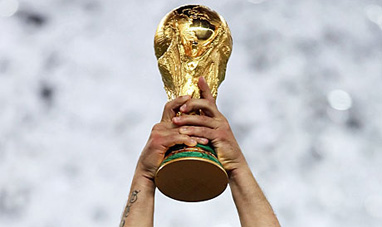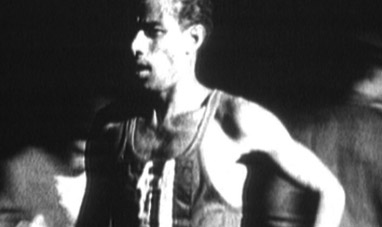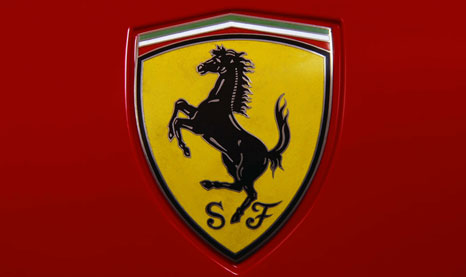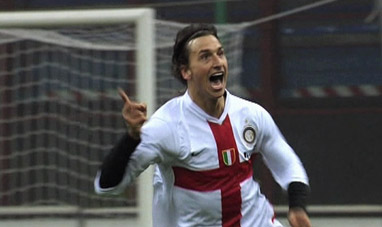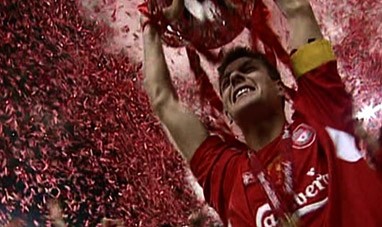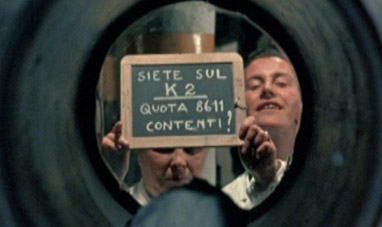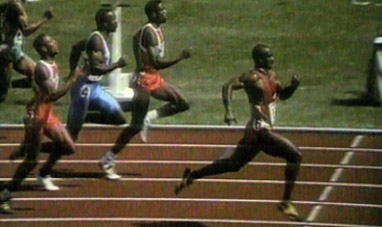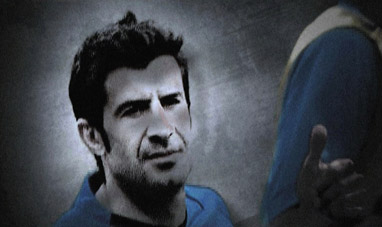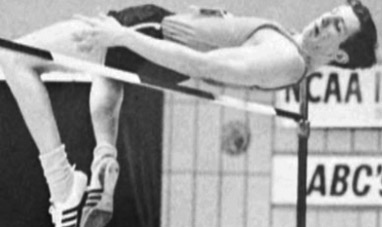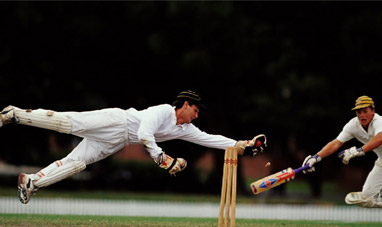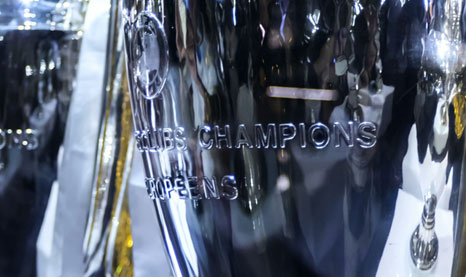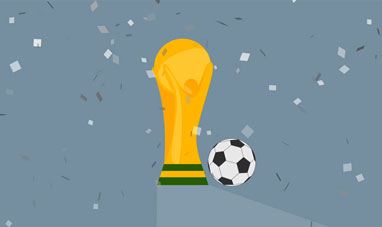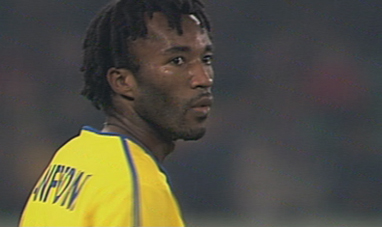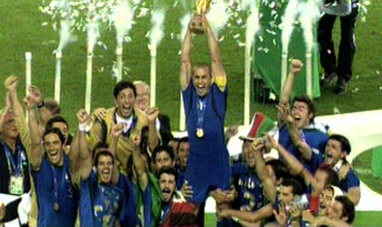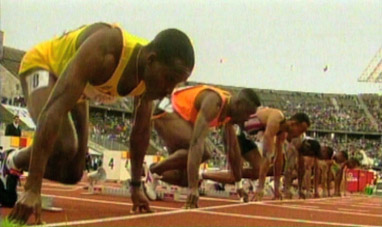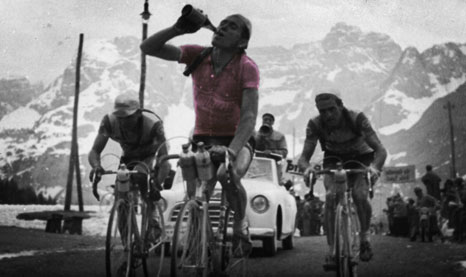July 16, 1950, Rio De Janeiro. Under the watchful gaze of 200,000 fans in the Maracanã stadium, Brazil and Uruguay faced each other in the 1950 World Cup finals.
It was the first World Cup championship to be held after World War Two. None of the European countries were in a position to organize the competition and so it was held in Brazil.
Soccer is a fundamental element of Brazilian culture, and the nation had always produced first-rate players. But Brazil had never won a World Cup tournament. Therefore the 1950 tournament on their home turf represented an extraordinary opportunity for victory.
The tournament was structured differently than in previous World Cups. There were no longer knockout elimination rounds. Now teams faced one another in round-robin groups, with the winners moving on to a final, point-based round.
Brazil reached the final phase easily, where it faced Sweden, Spain and Uruguay. Strengthened by an imperious offense led by lead goal scorer Ademir, the Brazilian team destroyed Sweden 7 to 1 and Spain 6 to 1. This left Uruguay, starring the talented playmaker Schiaffino, as the only team left between Brazil and victory.
Uruguay tied against Spain, and thus had one less point than the Brazilians going into the final match. In order to triumph, Uruguay had to win, while the Brazilians only needed a tie to come away with the winners’ cup.
Hardly anyone doubted the outcome: the Brazilians had already organized their victory celebration and newspapers boasting celebratory headlines were printed in advance.
On July 16, 1950, Brazil took to the field determined to win, attacking immediately. Uruguay resisted for the entire first half, but at the beginning of the second half they gave up a goal to Friaça, and the home team took the lead.
Celebrations erupted throughout the Maracanã stadium. But in the 66th minute Schiaffino tied with a shot that slipped under the crossbar.
Brazil would become champion even with a 1 – 1 tie, but fears began to spread about a clamorous defeat.
Humiliation came during the 80th minute: the Uruguayan Ghiggia entered the penalty area and surprised a less-than-impeccable Barbosa with a sharp, low shot on goal.
The stadium went silent. The remaining ten minutes weren’t enough for Brazil to recover. Uruguay won the World Championship.
The game was a national tragedy for Brazil. Several fans died of heart attacks at the stadium. In the days following the game, numerous people committed suicide in what became known as the “Maracanazo,” or Maracanã Tragedy.
Ghiggia, the player who extinguished Brazil’s hopes, would famously say: “Only three people have managed to silence the Maracanã: Frank Sinatra, Pope John Paul II and I.”
It was the first World Cup championship to be held after World War Two. None of the European countries were in a position to organize the competition and so it was held in Brazil.
Soccer is a fundamental element of Brazilian culture, and the nation had always produced first-rate players. But Brazil had never won a World Cup tournament. Therefore the 1950 tournament on their home turf represented an extraordinary opportunity for victory.
The tournament was structured differently than in previous World Cups. There were no longer knockout elimination rounds. Now teams faced one another in round-robin groups, with the winners moving on to a final, point-based round.
Brazil reached the final phase easily, where it faced Sweden, Spain and Uruguay. Strengthened by an imperious offense led by lead goal scorer Ademir, the Brazilian team destroyed Sweden 7 to 1 and Spain 6 to 1. This left Uruguay, starring the talented playmaker Schiaffino, as the only team left between Brazil and victory.
Uruguay tied against Spain, and thus had one less point than the Brazilians going into the final match. In order to triumph, Uruguay had to win, while the Brazilians only needed a tie to come away with the winners’ cup.
Hardly anyone doubted the outcome: the Brazilians had already organized their victory celebration and newspapers boasting celebratory headlines were printed in advance.
On July 16, 1950, Brazil took to the field determined to win, attacking immediately. Uruguay resisted for the entire first half, but at the beginning of the second half they gave up a goal to Friaça, and the home team took the lead.
Celebrations erupted throughout the Maracanã stadium. But in the 66th minute Schiaffino tied with a shot that slipped under the crossbar.
Brazil would become champion even with a 1 – 1 tie, but fears began to spread about a clamorous defeat.
Humiliation came during the 80th minute: the Uruguayan Ghiggia entered the penalty area and surprised a less-than-impeccable Barbosa with a sharp, low shot on goal.
The stadium went silent. The remaining ten minutes weren’t enough for Brazil to recover. Uruguay won the World Championship.
The game was a national tragedy for Brazil. Several fans died of heart attacks at the stadium. In the days following the game, numerous people committed suicide in what became known as the “Maracanazo,” or Maracanã Tragedy.
Ghiggia, the player who extinguished Brazil’s hopes, would famously say: “Only three people have managed to silence the Maracanã: Frank Sinatra, Pope John Paul II and I.”




